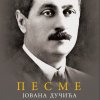Born to Branislav Malagurski and Slavica Malagurski, Boris grew up in the northern Serbian town of Subotica. In an interview for Literární noviny, Prague's cultural and political journal, Malagurski said that his last name originates from the Polish town of Mała Góra, noting that in the 17th century, a soldier from that town fought under the command of Prince Eugene of Savoy against the Turks in the Battle of Senta and afterwards decided to stay in Subotica, which is now in the Serbian province of Vojvodina.
Malagurski emigrated to Canada in 2005 and made a documentary film about his move from Serbia called The Canada Project. Excerpts from the film were shown on Serbian National Television, as a part of Mira Adanja-Polak's TV show. Since then, Malagurski identifies himself as Serbian Canadian. While studying Film Production at the University of British Columbia, Malagurski organized protests in Vancouver against Kosovo's declaration of independence and received help from Canadian journalist Scott Taylor and Irish diplomat Mary Walsh in making his film about Kosovo. Malagurski became a Canadian citizen and remained in Canada until 2011, when he returned to work in Serbia.
In 2010, the newspaper Politika described Malagurski as the "Serbian Michael Moore", though Malagurski himself had spoken of his use of "Michael Moore post-production techniques", earlier in the same year. The description was taken up by many other media outlets.
Film
Kosovo: Can You Imagine?
In 2009, Malagurski released Kosovo: Can You Imagine?, a documentary film about the plight of Serb communities living in Kosovo at that time. Former Canadian general Lewis MacKenzie, former Canadian diplomat James Byron Bissett, former UNMIK officer John Hawthorne and economist Michel Chossudovsky are interviewed in the film.
The Weight of Chains
In 2010, Malagurski released The Weight of Chains, his documentary film analyzing the role that the United States, NATO and the European Union allegedly played in the breakup of Yugoslavia. The film features interviews with James Byron Bissett, John Bosnitch, Michel Chossudovsky, Vlade Divac, Branislav Lečić, Veran Matić, John Perkins general Lewis MacKenzie and others. The film was shown in cinemas in Australia, Canada, the United States and Serbia, also at the festivals listed below, and on RT and Eurochannel TV networks.
The Presumption of Justice
Malagurski co-directed (with Ivana Rajović), The Presumption of Justice in 2012, a documentary dealing with the September 2009 death of Brice Taton, a fan of Toulouse FC, and alleged inconsistencies in the subsequent court case in Serbia. The film had its broadcasting premiere in April 2013 as a part of Malagurski's TV show on Happy TV which also featured an interview with a man who claimed to have witnessed the event, but who had not been called to testify.
Belgrade
Malagurski's next film Belgrade, (also known as Belgrade with Boris Malagurski), a documentary about Belgrade, the capital of Serbia had its world premiere on 19 October 2013 at Sava Centar in Belgrade and was aired on Radio Television Serbia on 20 October 2014. The film features interviews with several prominent Belgraders, including tennis player Novak Djokovic.
The Weight of Chains 2
The Weight of Chains 2 was released in 2014 as a part of the Serbian Film Festival at Montecasino in Johannesburg, South Africa. It features interviews with Noam Chomsky, Carla Del Ponte, Mlađan Dinkić, Vuk Jeremić, Ivo Josipović, Slavko Kulić, Miroslav Lazanski, Michael Parenti, Oliver Stone, R. James Woolsey and others. The film discusses the effects of neoliberal reforms on all aspects of life in the former Yugoslavia, from politics, economics, military, culture and education to the media.
Television
From 2013 to 2015, Malagurski hosted Revolution, a weekly TV show on Happy TV. The show, featured documentary segments and interviews with state officials, foreign and local experts and ordinary citizens of Serbia, until it was cancelled in January 2015. Malagurski claimed Happy TV gave no official reason for the show's cancellation.
In 2015, Malagurski started work as executive producer and host of a new TV show, Global, on BN TV, which deals with "global topics from a domestic perspective."
Malagurski also occasionally appears on RT, to comment on Balkan topics. During the 2014 Southeast Europe floods, Malagurski reported for Happy TV from several flooded areas in Serbia and, notably, presented the stories of Serbs and Croats working together to help the victims in Obrenovac, which attracted attention from both Serbian and Croatian media outlets.
Writing
Malagurski has written articles for the Politika daily newspaper and the political magazine New Serbian political thought.
In an interview for Marin Marinković's talk show One On One on Alternativna TV, Malagurski identified himself as being left-leaning, adding that he "supports protests as a form of pressure on governments" and that "elections are important, but democracy works only if we create the conditions under which any elected official will have to make decisions". Malagurski believes that "every government makes decisions in favor of the people only when in fear of the public reaction".
As a critic of neoliberalism, Malagurski believes that "resistance to neoliberalism is no longer a matter of ideology, but of common sense", and he advocates the inclusion of young people in politics, noting that most people in Serbia who share similar problems aren't united and can't recognize their common interest.
In October 2011, Malagurski showed his film The Weight of Chains at the Jarinje barricades on the Kosovo-Serbia border,[49] which he said was a show of support for the Serbs fighting for their rights in the disputed province.
In June 2012, Malagurski took part in a protest in front of the Radio Television Serbia building, that called for an end to "organized media darkness" in Serbia and requested the airing of Malagurski's film The Weight of Chains on Serbia's public broadcaster. In front of 200 protesters, Malagurski said that Aleksandar Tijanić, the director of RTS, had told him that despite positive reviews, The Weight of Chains couldn't be aired on RTS because it had already been aired on Happy TV, Malagurski claimed only clips had been shown, which he corroborated with documents from Happy TV. Malagurski also claimed that "Serbia is the only country in the region and in almost all of Europe, where The Weight of Chains has not been shown by the national public broadcaster".
Malagurski has given speeches about Balkan political issues, specifically on the future status of Kosovo. These include student and public forums at the University of Belgrade and elsewhere.
Threats controversy
In September 2012, Malagurski and Ivana Rajović (co-director), filed a criminal investigation request at Belgrade public prosecutor's office against 12 members of an internet message board for alleged "organized threats to their life and personal and professional safety", made on the message board after the premiere of The Presumption of Justice. Three of the 12 were charged and found guilty in March 2014 at the trial court in Belgrade, each was sentenced to a year in prison, suspended for 3 years of probation. Malagurski's actions and the court's decisions were criticised by Milica Jovanović, and Dario Hajrić[59] writing in Peščanik, and Jovana Gligorijević, writing in Vreme. Malagurski replied in responses published by Vreme in March 2014 and by NSPM in April 2014. Historian Čedomir Antić criticised Malagurski's accusers in an op-ed in Politika.
Kostić allegations
In January 2013, after an interview for Malagurski's TV show Revolution with Vesna Kostić of the World Bank office in Belgrade was broadcast, Kostić complained that Malagurski had "forged" a conversation in the broadcast. Malagurski denied the claims, adding that Ms. Kostic "forgot how she answered the questions".
Filmography
- The Canada Project (2005)
- Kosovo: Can You Imagine? (2009)
- The Weight of Chains (2010)
- The Presumption of Justice (2012)
- Belgrade (2013)
- The Weight of Chains 2 (2014)
Television series
- Revolution (2013–2015)
- Global (2015–present)
Festival screenings
- 2005, The Canada Project and Vreme Je in 'Young European Filmmakers' at the Palić Film Festival in Palić, Serbia
- 2009, Kosovo: Can You Imagine?, at the Mexico International Film Festival 2009, Rosarito, Mexico.
- 2009, Kosovo: Can You Imagine? at the BridgeFest International Film Festival, East Sarajevo, Bosnia-Herzegovina
- 2011, The Weight of Chains at the International Festival of New Latin American Cinema, Havana, Cuba
- 2011, The Weight of Chains at the Moving Images Film Festival, Toronto, Canada
- 2011, The Weight of Chains at the BELDOCS International Feature Documentary Film Festival, Belgrade, Serbia. Also, as part of 'Beldocs eho', in Novi Sad, Zrenjanin, Kragujevac, Niš, Vršac and Aleksinac, Serbia.
- 2011, The Weight of Chains in 'Balkan Cinema Strand' at the Raindance Film Festival, London, United Kingdom
- 2013, Belgrade at the Serbian Film Festival at Montecasino in Johannesburg, South Africa
- 2014, The Weight of Chains at the Balkan New Film Festival in Oslo, Norway
- 2014, The Weight of Chains 2 at the Serbian Film Festival at Montecasino in Johannesburg, South Africa
- 2015, The Weight of Chains 2 at the Balkan New Film Festival in Oslo, Norway
- 2015 The Weight of Chains 2 at the Subversive Festival in Zagreb, Croatia
- 2015, The Weight of Chains 2 at the Raindance Film Festival in London, United Kingdom
Awards
2009, Silver Palm Award (one of 14 films awarded in the Student Film category) for Kosovo: Can You Imagine? at the Mexico International Film Festival 2009, Rosarito, Mexico.
Source: Wikipedia





